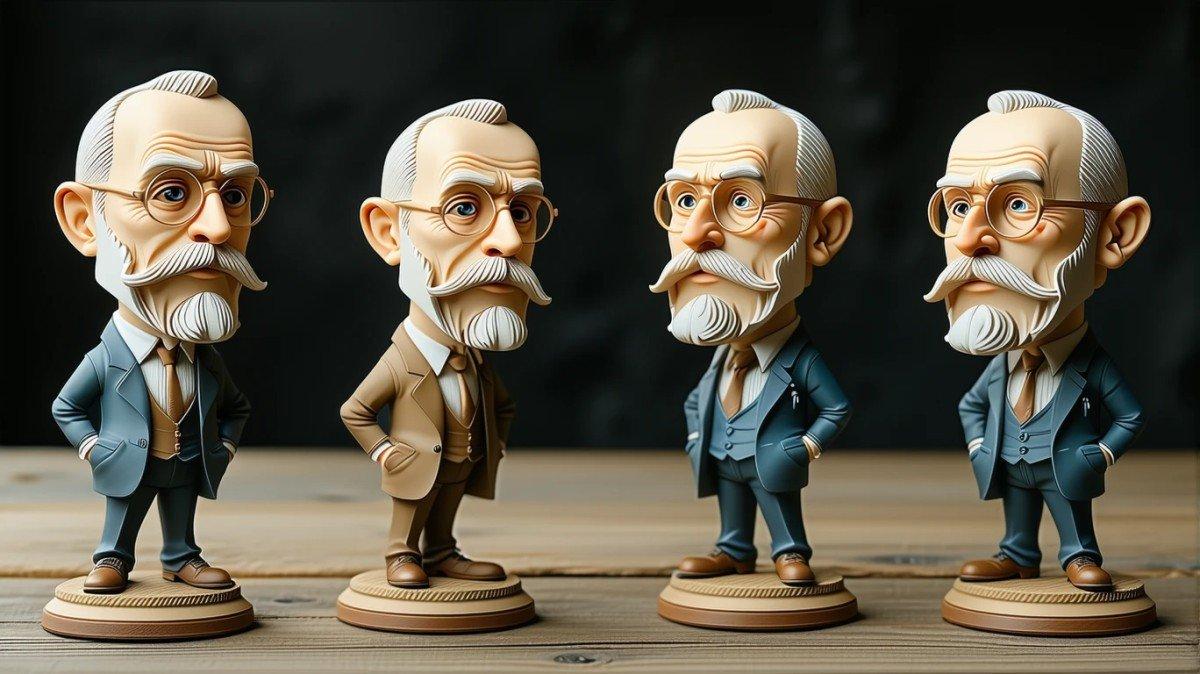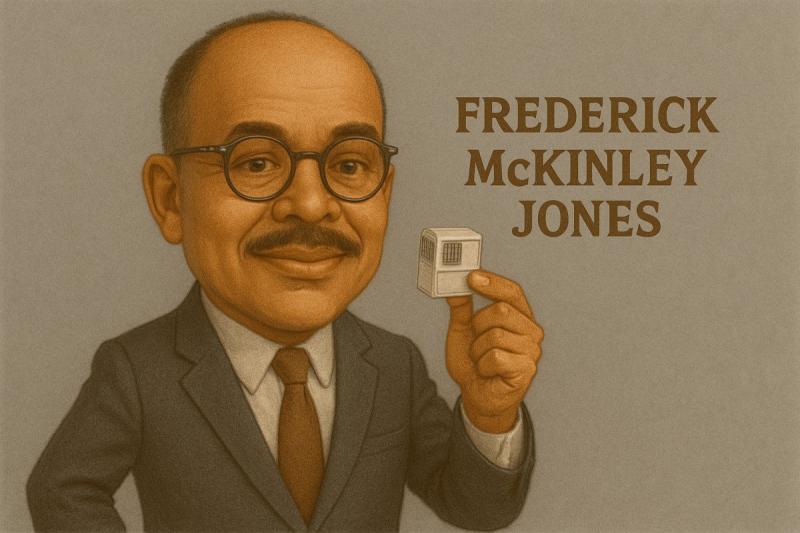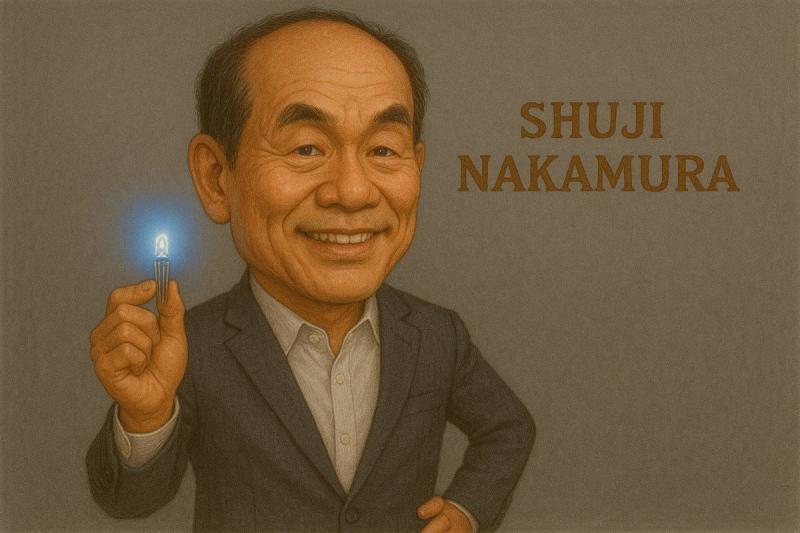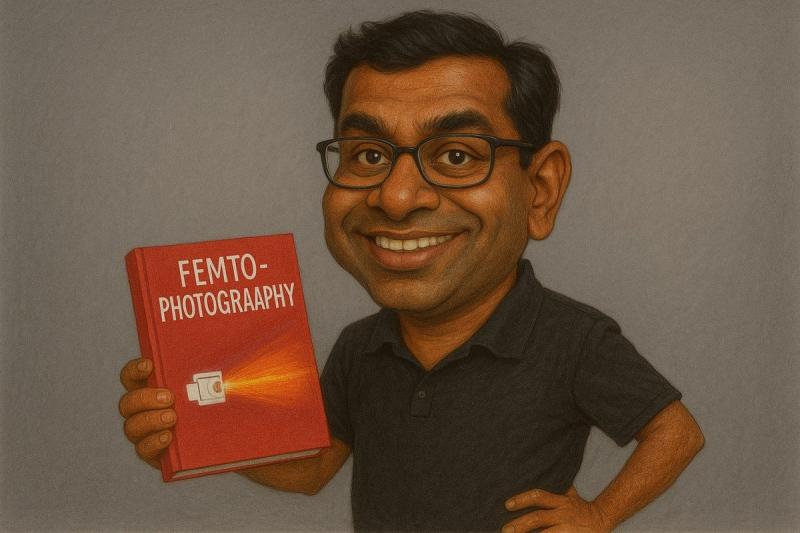Fritz Haber: The Conflicted Genius Who Changed the World
Ever wondered how a single person could simultaneously be responsible for saving billions of lives and taking countless others? Well, that's the perplexing legacy of Fritz Haber, a German chemist whose work embodies one of the most profound moral paradoxes in scientific history.
The Man Behind the Contradictions
Fritz Haber wasn't your average scientist tucked away in a quiet lab. He was ambitious, patriotic, and incredibly brilliant. Born in 1868 to a Jewish family in Prussia (now part of Poland), Haber had this relentless drive to prove himself in German society. And boy, did he succeed—though in ways that would leave humanity with a complicated inheritance.
I've always found Haber's story both fascinating and deeply troubling. Here was a man who literally found a way to pull food out of thin air, yet also weaponized his genius in ways that still haunt us today.
The Bread from Air: Haber's Gift to Humanity
Let's start with the good stuff. Haber's most beneficial contribution to humanity came through what's now known as the Haber-Bosch process, developed with Carl Bosch in the early 1900s.
Before this breakthrough, agriculture had a massive problem. Crops need nitrogen to grow, but usable nitrogen was becoming scarce. The world was literally facing potential starvation as natural fertilizers like guano (bird poop—yes, really) were running out.
Haber figured out how to take nitrogen from the air—which is abundant but in a form plants can't use—and convert it into ammonia, which could then be used to make fertilizers. This process quite literally allowed farmers to create fertilizer out of thin air!
The impact? It's hard to overstate. Today, this process:
- Supports food production for roughly half the global population
- Is responsible for about 2% of worldwide energy consumption
- Has fundamentally changed how we farm and feed ourselves
Without Haber's invention, our planet likely couldn't support more than 4 billion people—which means many of us wouldn't even be here reading this article. Think about that for a second. :)
The Dark Turn: Father of Chemical Warfare
Here's where things get uncomfortable. The same brilliant mind that solved world hunger also pioneered weapons designed specifically to cause suffering on an unprecedented scale.
During World War I, Haber enthusiastically put his scientific knowledge to work for the German military. He personally oversaw the first large-scale deployment of chlorine gas at Ypres, Belgium, in 1915. The attack killed or injured thousands of Allied soldiers, introducing the world to the horror of chemical warfare.
Haber apparently rationalized his work with cold logic: a weapon that could end the war quickly would ultimately save lives. He famously said, "During peace time a scientist belongs to the World, but during war time he belongs to his country."
IMO, this rationalization shows how even the brightest minds can compartmentalize morality when nationalism and ambition come into play.
Clara Immerwahr: The Conscience Haber Ignored
Perhaps no one understood the moral contradiction of Haber's work better than his first wife, Clara Immerwahr. She wasn't just "Fritz Haber's wife"—she was a brilliant chemist in her own right, one of the first women to earn a doctorate in chemistry in Germany.
Clara strongly opposed Haber's weapons work on ethical grounds. As someone who'd dedicated her life to science, she believed scientific knowledge should be used to benefit humanity, not destroy it.
Their marriage was already strained, but Haber's chemical warfare work pushed Clara to her breaking point. On May 2, 1915, after a party celebrating Haber's "success" at Ypres, Clara took Haber's military pistol and shot herself in their garden. Their 13-year-old son discovered her body.
What did Haber do after this devastating personal tragedy? He left for the Eastern Front the very next day to oversee more gas attacks. If that doesn't highlight the darkness in his dedication to his cause, I don't know what does.
The Nobel Prize and the Exile
In a twist that perfectly captures Haber's contradictory legacy, he was awarded the Nobel Prize in Chemistry in 1918 for his work on ammonia synthesis—while simultaneously being considered a war criminal by many for his chemical warfare work.
The ultimate irony? Despite his patriotic devotion to Germany, Haber—being Jewish—was forced to flee the country when the Nazis rose to power in 1933. The man who had converted to Christianity and served Germany with such devastating loyalty was ultimately rejected by the country he loved.
He died in exile in Switzerland in 1934, a broken man whose legacy still defies simple judgment.
The Lasting Impact: A Mixed Legacy
Today, Haber's legacy continues to shape our world in profound ways:
- The Haber-Bosch process still feeds billions, with synthetic fertilizers enabling modern agriculture
- His pioneering work in chemical weapons led to international laws banning their use
- His story serves as a cautionary tale about the moral responsibilities of scientists
Scientists today often study Haber's story as a stark reminder that technological advancement without ethical consideration can lead to disastrous consequences. Despite his contributions to feeding the world, many chemical and scientific institutes have removed his name from honors and buildings due to his weapons work.
What Can We Learn?
Haber's story raises uncomfortable questions that remain relevant today:
Can we separate scientific achievement from its moral implications? Should we?
Is a scientist responsible for how their discoveries are used?
How do we weigh positive contributions against negative ones when judging historical figures?
There are no easy answers here. Haber saved billions through his fertilizer work while enabling the suffering of countless others through chemical warfare. He was both a humanitarian and a war criminal, a patriot and an outcast.
If there's one lesson we can take away, it's that science itself is morally neutral—it's how humans choose to apply knowledge that defines us. Haber chose to apply his genius in ways that both nourished and poisoned humanity, leaving behind a legacy as complex and contradictory as the man himself.
What would you have done in his position? That's a question worth pondering as we continue to push the boundaries of what science can achieve.



